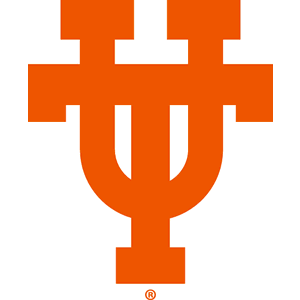Inferring dependencies and associations to create algorithms that learn from experience
Human intelligence is often defined by our ability to identify and build upon associations and connections between concepts based on past experience. In order to replicate this "intelligence," it is thus vital to characterize the ability to infer such connections and associations between variables and entities. Such a characterization thus has implications for the very underpinnings of "machine learning" which at its core asks: what are the principles machines use to learn from experience and data?
Dr. Pradeep Ravikumar of the University of Texas, is working to elucidate the underlying mathematical and information-theoretic mechanisms by which we can learn such dependencies, associations, and connections among not just a few variables, but on a "big data" scale. He and his team, with a grounding in both statistics and computer science, are working to use multiple technologies to look at the many connections and associations that exist between variables (which could be genes, neurons, and other parts of varied systems) reliably with limited computation and limited data. His research has the potential to have an enormously great impact not only in applications and commercial endeavors, but also in understanding the nature of Artificial Intelligence itself.
Current projects include:
-
Cancer Genomics: Dr. Ravikumar is using multiple technologies to infer dependencies among mutation status and expression or activity levels of thousands of genes simultaneously. This would illuminate how mutations of one gene affects activity levels of various genes, and therefore would help to form a "global" picture of mutations and activity across the genome. This picture could be further extended to include connections with proteins.
- Connections Between Brain Regions: By using imaging data from multiple technologies such as Functional MRI, Diffusion MRI, and Structural MRI, Dr. Ravikumar is looking at connections between brain regions. Given additional data, this brain connection picture could be further extended to include connections with genes. This may help explain behaviors and abilities for normal brain functioning, specific pathologies, as well as for individuals on the autism spectrum, therefore leading to targeted therapies.
Bio
Website: http://www.cs.utexas.edu/~pradeepr/
Dr. Ravikumar was attracted to statistical machine learning via artificial intelligence, to which he arrived due to an early interest in neuroscience and psychology in turn. The philosophical quest to understand what allows humans to learn from experience and data then led to a curiosity in understanding how such an understanding could be translated, however limited, into mathematical terms so that the scientific community can make machines and algorithms learn from experience and data.
Dr. Pradeep lead the Statistical Machine Learning Group at the Department of Computer Science at The University of Texas at Austin. He is also the associate director of the Center for Big Data Analytics at The University of Texas at Austin. He is also affiliated with the Department of Statistics and Data Sciences, and the Institute for Computational Engineering and Sciences.
Dr. Pradeep obtained his Ph.D. from the School of Computer Science at Carnegie Mellon University in 2007, advised by John Lafferty, and was a postdoctoral scholar at the Department of Statistics, University of California, Berkeley through 2009, working with Martin Wainwright and Bin Yu.
He has received the Sloan Research Fellowship, the National Science Foundation's Career Award and the Siebel Scholarship. In addition, he was the Program Chair for the Sixteenth International Conference on Artificial Intelligence and Statistics (AISTATS) 2013.
In the News
The Economic Times


